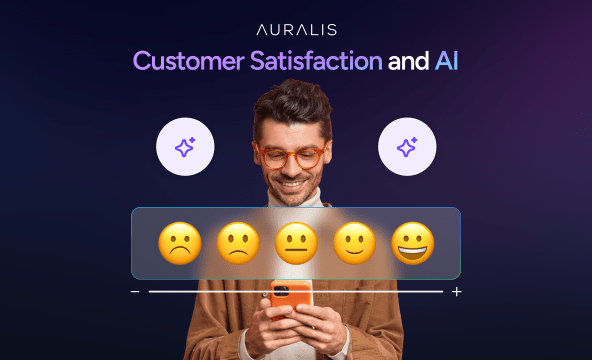AI for customer satisfaction
AI for customer satisfaction is rapidly becoming an essential tool for businesses looking to enhance their customer service efforts, drive loyalty, and improve overall customer experiences. By leveraging artificial intelligence technologies, companies can better understand customer needs, address issues more effectively, and deliver more personalized, responsive service that leads to higher satisfaction levels.
One of the main ways AI drives customer satisfaction is through automation. AI-powered chatbots and virtual assistants can handle common queries and problems around the clock, providing immediate assistance. This eliminates long wait times, ensuring customers receive prompt responses and reducing frustration. With AI, customers no longer have to wait in long queues or repeatedly contact support; instead, they can get quick answers to their questions or resolve issues instantly, improving their overall experience.
AI also contributes to customer satisfaction by personalizing interactions. By analyzing customer data, such as past interactions, preferences, and behavior, AI can offer tailored recommendations and solutions, ensuring that each customer feels valued and understood. Personalization can take many forms, from addressing customers by name to offering targeted product suggestions based on their previous purchases. This level of attention makes customers feel like their needs are being met in a way that is relevant and specific to them, which significantly boosts their satisfaction.
AI for customer satisfaction also excels in handling complex queries and issues more efficiently. Through machine learning algorithms, AI systems can identify trends and patterns in customer interactions, enabling them to provide more accurate solutions to recurring problems. AI tools can even predict potential issues before they arise, allowing businesses to proactively resolve them before they impact the customer. This predictive capability helps to build trust with customers, as they can rely on the company to stay ahead of problems and provide solutions before they escalate.
Furthermore, AI allows for seamless multi-channel support, ensuring a consistent and satisfying experience no matter how customers choose to interact with a business. Whether through live chat, social media, email, or phone, AI ensures that the service remains uniform, with the customer’s data and history accessible across all platforms. This reduces confusion, as customers don’t have to repeat themselves, and ensures that every interaction is informed and efficient, contributing to a positive and cohesive experience.
Another way AI drives customer satisfaction is by enabling businesses to gather valuable insights and feedback. Through AI-powered analytics, businesses can analyze customer sentiment, identify pain points, and monitor satisfaction metrics in real-time. By gaining a deeper understanding of customer needs and preferences, businesses can adapt their strategies to improve service quality, address customer concerns more effectively, and continually refine their offerings to better meet customer expectations.
AI for customer satisfaction also helps businesses scale their customer support operations without compromising quality. As businesses grow and customer demand increases, AI can handle a large volume of inquiries simultaneously, ensuring that each customer receives the attention they need. This scalability is crucial for maintaining high levels of satisfaction during peak times or as a business expands its customer base.
In conclusion, AI for customer satisfaction is a game-changer, enabling businesses to provide faster, more personalized, and more efficient support. By automating routine tasks, personalizing interactions, predicting customer needs, and offering multi-channel consistency, AI empowers businesses to enhance customer satisfaction, strengthen customer loyalty, and build lasting relationships that drive success.

- Articles
As markets get more competitive, businesses are acknowledging the importance of loyal customers to drive sustainable revenue. But loyalty isn’t
-
 Amy
Amy
- 7 min read
